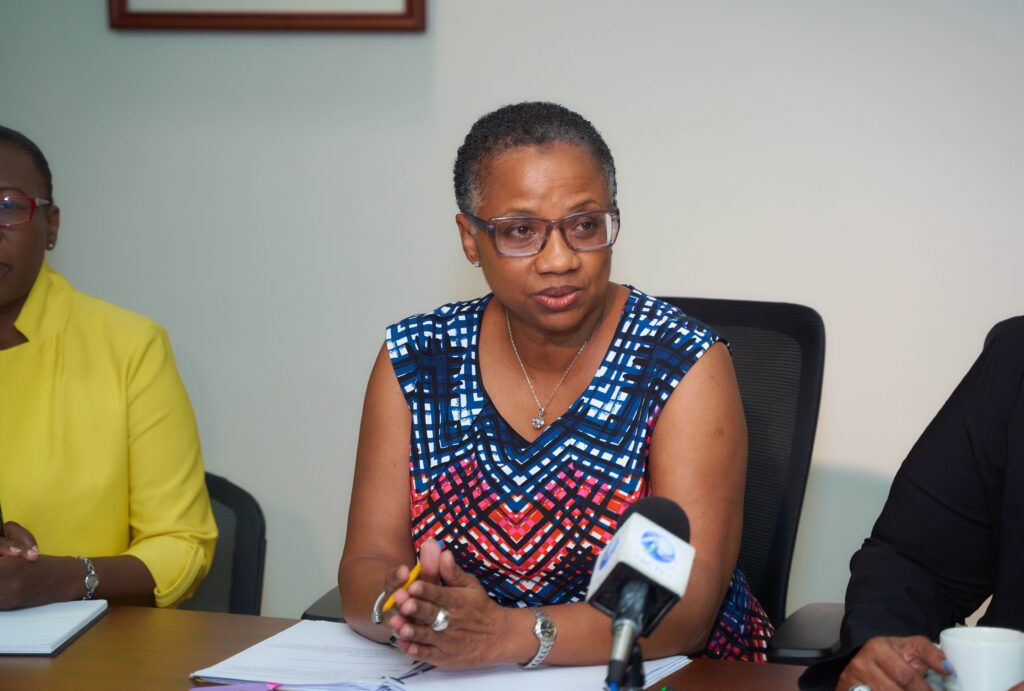Two utility intervenors have taken opposing positions regarding the Fair Trading Commission (FTC) decision to approve a Barbados Light & Power Company (BLPC) request that will result in customers paying more for electricity, with one saying it is “bad” and “wrong” decision and the other suggesting that it was necessary.
The regulator last week ruled that BLPC could pass on the rental and operating costs of temporary generators which it needed to consumers, through the fuel clause adjustment (FCA), giving the power company an initial one year for that arrangement, with the possibility of extending for a second year only if the FTC finds it necessary. The cost of renting andoperating 11MW of temporary Aggreko generator units has been estimated at $856 046 which the FTC said would result in a “modest increase in monthly bills” from next month.
The ruling has drawn sharp criticism from outspoken consumer advocate and attorney Tricia Watson while the Barbados Renewable Energy Association (BREA) has endorsed the FTC decision. Watson, a former utility advisor to Prime Minister Mia Mottley, said the FTC’s decision was both bad and wrong for consumers and the country from a rate regulation perspective.
“The decision is a wrong decision based on the application and the evidence in the application, but it is also a bad decision technically, from a regulation perspective,” she said on the Down to Brass Tacks radio call-in programme on Friday.
Watson argued that while the BLPC was seeking to have consumers foot the additional bill, it continued to make profits.
“Where we find ourselves is because this company has focused on paying very high dividends and refused to invest in the network to the extent that it should, to meet its legal obligations,” she explained.
“The Barbados Light and Power, in the same time that they are going to the FTC and say ‘cuh dear, give us some extra money’…that company is making profitsand paying dividends. It has not stopped. 2021, 2022, 2023. We have yet to see what’s happening in 2024, but we also know that they have had record sales, which means potentially record revenues.”
The former opposition senator added: “The other thing is that the rates for renewable energy production are higher than the fuel charge for fossil fuel that we are paying today. Those rates are also being paid for by Barbadians through the fuel clause adjustment, and now we are also going to pay an even higher rate for these rental units.
“So, when we talk about these rental units, what we are paying for isn’t just the fuel, we are paying for the rental of the units. Those costs we are already paying, because the rate base that is set for Light & Power to say ‘these are our costs and we need to recover them,’ we pay for Light & Power to have adequate capacity. So, we are paying already, and that is another egregious element of this decision.”
Watson further argued that the FTC was effectively rewarding the utility’s mismanagement, noting that the commission itself had expressed concerns about the company’s “imprudent management and breaches of statutory and regulatory requirements”.
She also contended that with the recent decision, the country has reason to worry about a reliable supply of electricity.
“The FTC itself expressed great concern about this situation with lack of adequate reserve capacity. In its own interrogatories in this rate case, Light & Power, in its responses to an FTC interrogatory, confirmed that the additional 11 megawatts we are looking at now would not be sufficient to offset the risks of electricity generation shortfalls and grid instability. So, we are not even safe given this decision,” the attorney warned.
However, BREA, in a statement on Friday, said that given the state of the sector, the FTC’s decision “was necessary to ensure continued grid stability while safeguarding the interests of electricity consumers and re-invigorating the energy transition”.
“BREA understands that the decision is only a short-term stopgap measure that should enhance BLPC’s ability to avoid outages and instability, thus maintaining reliable service but minimising costs during our renewable energy transition.
“BREA also notes and welcomes the enhanced monitoring of grid operation and maintenance generally and of these units specifically. Through this decision, the FTC is taking care to monitor the use of these units to ensure that they are indeed ‘used and useful’ over the period of operation and will further monitor other aspects of grid operation and maintenance,” the statement added.
The association acknowledged, however, that a more appropriate mechanism than the FCA must be found to recover costs such as that which the BLPC is seeking.
“There is a need for the introduction of a new purpose-built instrument which provides transparency to customers, separating the interim costs and ongoing fuel costs and making the cost allocation clearer to electricity consumers,” the renewable energy body suggested.
It expressed hope that these short-term challenges can be managed, allowing greater focus on the long-term solution: a continued transition to renewable energy generation supported by suitable energy storage and grid management technologies.
“Building this cleaner, more reliable and affordable grid can make stopgaps like the temporary generators unnecessary. With the price of solar and storage dropping worldwide, the transition is a national investment that will be cost-effective in the long run. It will also lessen Barbados’ exposure to volatile fossil fuel prices, reduce the drain on foreign reserves, and create jobs for Bajans,” BREA stated. emmanueljoseph@barbadostoday.bb
The post Watson blasts FTC decision to allow BL&P increase appeared first on Barbados Today.


